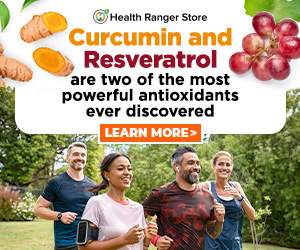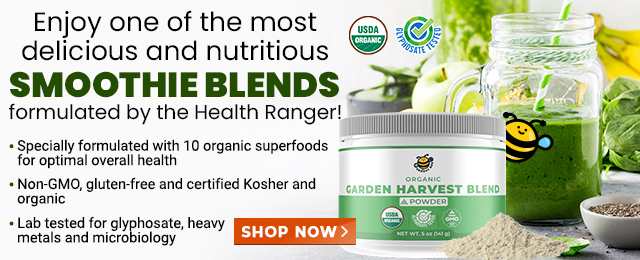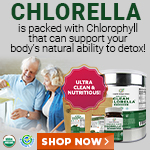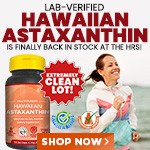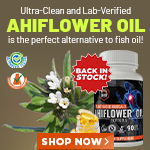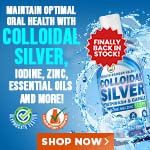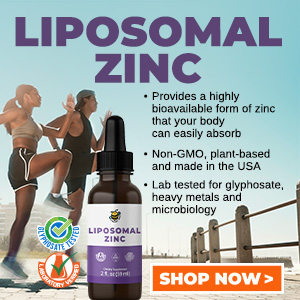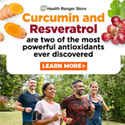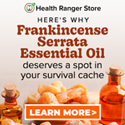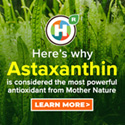
Interview with David Bronner, president of all-natural, authentically organic Dr. Bronner's Soaps
 Wednesday, February 01, 2006 Wednesday, February 01, 2006by Mike Adams, the Health Ranger Editor of NaturalNews.com (See all articles...) Tags: personal care products, business ethics, health products |
- New study links mRNA vaccines to GENETIC CHANGES - and not the good kind
- Fauci is back in the limelight, and he’s busy promoting a future COVID or FLU pandemic
- Tulsi Gabbard leads charge against the Biden regime’s global censorship of the 'Disinformation Dozen'
- A comprehensive guide to DANDELIONS, an ancient herbal medicine and superfood
- DEADLY FLU JAB WARNING: New flu vaccines make recipients 27 PERCENT MORE LIKELY to catch the flu
- Aerosolized bioweapons? Strange “diploid biomasses” falling out of the sky in Florida captured under the microscope
- How Israeli military-connected corporations are secretly controlling your online privacy
- Idaho Gov. Brad Little signs Medical Freedom Act banning vaccine mandates
- Analysis: The coming economic collapse, a mass uprising and Trump's three secret weapons to halt the growing revolt
- Kiss Your Genetic Privacy Good-Bye! 23andMe Gets Green Light to Sell Your Intimate Genetic Details to Anyone They Want
- U.S. lawmakers investigate Meta over alleged China collaboration
- DEATH BY DOCTOR: Why and how doctors are now PAID TO KILL their patients
- Tulsi Gabbard takes aim at censorship: Justice for the ‘Disinformation Dozen’
- Widespread social and economic unrest: Steve Quayle issues urgent financial warning of imminent asset collapse in new interview with Mike Adams
- Curcumin’s ancient healing power supercharges muscle recovery, and its effects are compounded with anti-inflammatory foods and supplements
- CIA Official Terry Adirim TERMINATED for her role in pushing unlawful vaccine mandates on the military
- Mike Adams releases country western hit single: Goin’ Back in Time is Comin’ Home
- Trump’s EPA reviews fluoride safety amid growing concerns over risks to children’s health
- Aerosolized bioweapons? Strange “diploid biomasses” falling out of the sky in Florida captured under the microscope
- Analysis: The coming economic collapse, a mass uprising and Trump's three secret weapons to halt the growing revolt
- Kiss Your Genetic Privacy Good-Bye! 23andMe Gets Green Light to Sell Your Intimate Genetic Details to Anyone They Want
- Widespread social and economic unrest: Steve Quayle issues urgent financial warning of imminent asset collapse in new interview with Mike Adams
- Defunding DEADLY mRNA jabs: Government funding for mRNA technology being scrutinized and sidelined until proven "safe and effective" for real
- CLOT SHOT PLANDEMIC UNFOLDING: Fibrous, rubbery clots caused by covid injections have prion-like seeding activity
- European Court of Justice: Healthcare professionals who promoted or administered COVID-19 vaccines are CRIMINALLY LIABLE for any harm caused
- Mike Adams releases country western hit single: Goin’ Back in Time is Comin’ Home
- DEATH by VACCINE or face PRISON time: Canadian Freedom Convoy leaders CONVICTED for protesting forced vaccination during the Covid Plandemic
- Newly released JFK files reveal Pentagon's role in creating Lyme disease and covid in the same lab
- “Project Aldrin”: Senate probes Meta's alleged censorship dealings with China
- How Israeli military-connected corporations are secretly controlling your online privacy
- The hidden war above: Chemtrails, HAARP and the battle for planetary control
- Federal employees whine over DOGE's new directive requiring them to do a 5-point summary of weekly accomplishments
- FBI imposed gag order on agents to silence Hunter Biden laptop truth before 2020 election, new chat logs reveal
- Tulsi Gabbard leads charge against the Biden regime’s global censorship of the 'Disinformation Dozen'
- U.S. approves new Russian ambassador as diplomatic thaw continues
- I Want My Bailout Money – new song released by Mike Adams
- Newly released JFK files reveal Pentagon's role in creating Lyme disease and covid in the same lab
- Mike Adams releases country western hit single: Goin’ Back in Time is Comin’ Home
- Dr. Mike Yeadon releases 15-minute testimony - WATCH - about genocidal intent of COVID “vaccines”
- The Health Ranger releases “Vaccine Zombie” song and music video, using AI-animated zombies for the music video
- California's social media censorship law struck down: A victory for free speech or a threat to online safety?
- EPA advisor admits the agency is funneling billions to climate groups ahead of Trump’s return to White House
- Rep. Nancy Mace introduces bill to ban biological males from female facilities on federal property
- OpenAI whistleblower who dissented against how the company trained ChatGPT found dead
- Survival 101: Effective EMF blocking techniques
- Analysis: The coming economic collapse, a mass uprising and Trump's three secret weapons to halt the growing revolt
- MEDICAL BOMBSHELL: FDA admits Covid mRNA 'Vaccines' CAUSE CANCER
- CONSERVATIVES SOUND THE ALARM: Big Pharma and the Left trying to force $32 billion money grab from America’s seniors into year-end spending deal
- Florida takes a stand: DeSantis proposes permanent ban on mRNA vaccine mandates
- Sugarcane extract superior to cholesterol-lowering drugs?
- Pilots report mysterious lights 'moving at extreme speeds' across Oregon skies
- Trump reverses course on Gaza plan, says “nobody is expelling Palestinians”
- 5 Simple steps to boost your brainpower: How to strengthen executive function in a distracted world
- Trump Administration cuts 2,000 USAID jobs, places most employees on leave in sweeping reform effort
- Red Cross issues warning to stop blood plasma donations from vaccinated people
- Scientists confirm: GENIUS brain function can be spontaneously unleashed in humans without any apparent cause
- EPA advisor admits the agency is funneling billions to climate groups ahead of Trump’s return to White House
- HYSSOP: What research reveals about the health benefits of this ancient holy herb
- Two containers with completed ballots fall out of truck in Florida
- Fully vaccinated about to see “tsunami” of illness and death, warns virologist
- Global leaders unite to clamp down on “misinformation” with UN-backed Cascais Declaration
- Newly released JFK files reveal Pentagon's role in creating Lyme disease and covid in the same lab
- BREAKING: 2025 NDAA authorizes mandatory military draft of WOMEN across America… as Pentagon pursues global NUCLEAR war with both Russia and China at the same time
- Michael Yon warns of a ZIONIST TAKEOVER in Trump’s second administration
- Ozempic and Wegovy weight loss drugs are injectable LIZARD VENOM PEPTIDES that may unleash a devastating wave of organ failure… side effects align with symptoms of SNAKE BITES
- The Health Ranger releases “Vaccine Zombie” song and music video, using AI-animated zombies for the music video
- BOMBSHELL: DNA testing kits are a SCAM to develop ethnic-specific bioweapons
- Israeli soldiers accused of even more torture and abuse in the West Bank
- These 13 countries just signed an agreement to engineer a global FAMINE by destroying food supply
- NASA admits that climate change occurs because of changes in Earth’s solar orbit, and NOT because of SUVs and fossil fuels
- RFK Jr. clears key hurdle: Sen. Susan Collins backs controversial HHS nominee, signaling a new era for health policy
- Sermon 30: How Jesus reveals Caesar’s FAKE CURRENCY and FALSE AUTHORITY
Bronner: Or lack thereof.
Mike: Or lack thereof. Can you tell the readers what this is all about?
Bronner: Basically in the food world, a company that is making organic products, or putting organic into the brand name -- for instance, Maggie's Organics or Albert's Organics, which is the largest organic produce distributor in the U.S. -- actually makes, produces and sells organic products. In personal care, companies think there is a loophole, such that they can put "organic" or "organics" into the brand name even if it's not an entirely organic product. So instead of doing the hard work of working with the manufacturers to build the real ingredients from organic material and certified organic farms, they just have just the same old formulations as always, add a little organic water and extract of this or that and then slap "organics" into the brand name.
Mike: So some of these products are 90 percent or even 95 percent of the same old process -- chemical ingredients with a little bit of organic water -- and then they call it organic shampoo or organic soap.
Bronner: Yes. The word "nature" or "organic" appears huge on the label. With a truly organic personal hair product, there's no distinction on the label to a consumer. The consumer doesn't know. It's just ruining the organic labeling program for personal care.
Mike: So what you are hoping to see, then, is an organic labeling law or regulation in the personal care products industry that's similar to the food industry?
Bronner: Exactly. Superficially, everyone says that's what they want, but in practice they're saying, "Here, we'll just do this branding. We don't really care what the ultimate personal care standard works out to be. We're just going to work around it and brand 'organic' on the products we're going to make."
Mike: If it deceives the consumer, the consumer buys it and the manufacturer profits.
Bronner: Exactly. They keep their costs down and don't pay any organic premiums.
Mike: I'm reminded of some of the shampoos that you can find at Wal-Mart, like Herbal Essences Shampoo. You look at it, and where are the herbs?
Bronner: Exactly, and it's almost worse (than) what's happening in the natural channel because at least at Wal-Mart, the consumer doesn't necessarily care whether there are herbs. But at health food stores, consumers are motivated to support organics. They want organics. It's that much worse, then, to see this deceit, deception or fraud going on. A lot of people complain about the Clairol "Organic and Orgasm" ad, and yes, that's not great. However, the ad is more about selling sex than organics to a particular demographic or mass market, whereas in the natural world, when a company like Jason puts "pure natural organic" on the label, people believe it. People trust that organic program, and these personal care companies are ripping off the integrity and rigor of the program, and ultimately they're going to compromise it and create lack of trust in the whole program for food as well as body care.
Mike: What are some of the ingredients that consumers should watch out for on the labels of these shampoos or soaps that kind of give away that they are not organic products?
Bronner: Well, definitely if you see anything that ends in "eth." The suffix "eth" means fatty alcohol is being ethoxylated with ethylene oxide, and that produces 1,4 dioxane as a trace contaminate. There's no way that belongs in a natural product, let alone an organic product.
Mike: So you should watch out for any chemical word that ends with "eth." Some companies like to list some ingredients and say they are from corn or something.
Bronner: Yes, and sometimes they're right. I mean there are better or worse surfactants. Some do come from corn sugar and coconut fatty acids, but these marketing editors don't know what's what; they don't care. They'll say it's all from corn, you know?
Mike: So to switch gears, Dr. Bonner's Soap Company has remained in the family. It has not sold out to the big business in this country that I'm sure has made offers for your company.
Bronner: Sure.
Mike: So why is that? What keeps the passion going in your company and in your family to keep this as a wholesome product?
Bronner: We're more of a charitable engine, almost a social progressive engine, than a business. Our big project right now is sustainability in personal care. This is our industry, and it's important because this is the first industry outside of food that's going to go organic. It needs to go organic in a way that sets a precedent for other industries. This is the precedent we need to set in this industry, but generally, you watch what happens at Body Shop or any of the progressive businesses that sell out, and they just lose social mission. That's what we care about. We're kind of a nonprofit. We don't need to go out and hassle people to give us money. We sell a really cool product; it's part of our mission.
Mike: It's a fantastic sustainable business model for social change. I haven't seen any really serious competition to your product from Proctor and Gamble, say, or the big makers. All their products, even if they tried to do something like yours, are so polluted with ingredients that natural people don't want that. It doesn't even compete.
Bronner: Right, that's the thing. Generally, they are so obsessed with detergents and this and that, that they won't use a pure Castile soap, partly because the cost of materials is quite high to make a really good Castile soap. For them, it's the cost of goods; it just doesn't work in their business model. In a way, they can't really offer it.
Mike: Because they're getting so much to go through the channel and so much to market.
Bronner: We're in a fortunate position. We put in 2 percent peppermint oil. No one spends that kind of money for that level of peppermint oil and 40 percent soap. Most soaps are around 15 percent concentrated. [Our soup] is very rare and they haven't produced anything that even comes close to it.
Mike: The only thing I've seen is a product at Trader Joe's.
Bronner: Yes, and that is some tallow oil; it's some inferior kind of cheap oil that they're using.
Mike: I just noticed it recently, in fact. I hadn't seen it before now.
Bronner: See, it may come to us private label, and we just don't private label.
Mike: I see.
Bronner: We use our own brand formula. It's our unique label, and we don't want it on other labels.
Mike: Well, thank you for taking time to talk with me, David.
Bronner: You're welcome!
Personal care products at FETCH.news
Get independent news alerts on natural cures, food lab tests, cannabis medicine, science, robotics, drones, privacy and more.
 About the author:Mike Adams (aka the "Health Ranger") is a best selling author (#1 best selling science book on Amazon.com) and a globally recognized scientific researcher in clean foods. He serves as the founding editor of NaturalNews.com and the lab science director of an internationally accredited (ISO 17025) analytical laboratory known as CWC Labs. There, he was awarded a Certificate of Excellence for achieving extremely high accuracy in the analysis of toxic elements in unknown water samples using ICP-MS instrumentation. Adams is also highly proficient in running liquid chromatography, ion chromatography and mass spectrometry time-of-flight analytical instrumentation.
About the author:Mike Adams (aka the "Health Ranger") is a best selling author (#1 best selling science book on Amazon.com) and a globally recognized scientific researcher in clean foods. He serves as the founding editor of NaturalNews.com and the lab science director of an internationally accredited (ISO 17025) analytical laboratory known as CWC Labs. There, he was awarded a Certificate of Excellence for achieving extremely high accuracy in the analysis of toxic elements in unknown water samples using ICP-MS instrumentation. Adams is also highly proficient in running liquid chromatography, ion chromatography and mass spectrometry time-of-flight analytical instrumentation.
Adams is a person of color whose ancestors include Africans and Native American Indians. He's also of Native American heritage, which he credits as inspiring his "Health Ranger" passion for protecting life and nature against the destruction caused by chemicals, heavy metals and other forms of pollution.
Adams is the founder and publisher of the open source science journal Natural Science Journal, the author of numerous peer-reviewed science papers published by the journal, and the author of the world's first book that published ICP-MS heavy metals analysis results for foods, dietary supplements, pet food, spices and fast food. The book is entitled Food Forensics and is published by BenBella Books.
In his laboratory research, Adams has made numerous food safety breakthroughs such as revealing rice protein products imported from Asia to be contaminated with toxic heavy metals like lead, cadmium and tungsten. Adams was the first food science researcher to document high levels of tungsten in superfoods. He also discovered over 11 ppm lead in imported mangosteen powder, and led an industry-wide voluntary agreement to limit heavy metals in rice protein products.
In addition to his lab work, Adams is also the (non-paid) executive director of the non-profit Consumer Wellness Center (CWC), an organization that redirects 100% of its donations receipts to grant programs that teach children and women how to grow their own food or vastly improve their nutrition. Through the non-profit CWC, Adams also launched Nutrition Rescue, a program that donates essential vitamins to people in need. Click here to see some of the CWC success stories.
With a background in science and software technology, Adams is the original founder of the email newsletter technology company known as Arial Software. Using his technical experience combined with his love for natural health, Adams developed and deployed the content management system currently driving NaturalNews.com. He also engineered the high-level statistical algorithms that power SCIENCE.naturalnews.com, a massive research resource featuring over 10 million scientific studies.
Adams is well known for his incredibly popular consumer activism video blowing the lid on fake blueberries used throughout the food supply. He has also exposed "strange fibers" found in Chicken McNuggets, fake academic credentials of so-called health "gurus," dangerous "detox" products imported as battery acid and sold for oral consumption, fake acai berry scams, the California raw milk raids, the vaccine research fraud revealed by industry whistleblowers and many other topics.
Adams has also helped defend the rights of home gardeners and protect the medical freedom rights of parents. Adams is widely recognized to have made a remarkable global impact on issues like GMOs, vaccines, nutrition therapies, human consciousness.
In addition to his activism, Adams is an accomplished musician who has released over a dozen popular songs covering a variety of activism topics.
Click here to read a more detailed bio on Mike Adams, the Health Ranger, at HealthRanger.com.
Take Action: Support Natural News by linking to this article from your website
Permalink to this article:
Embed article link: (copy HTML code below):
Reprinting this article:
Non-commercial use OK, cite NaturalNews.com with clickable link.
Follow Natural News on Facebook, Twitter, Google Plus, and Pinterest
Science News & Studies
Medicine News and Information
Food News & Studies
Health News & Studies
Herbs News & Information
Pollution News & Studies
Cancer News & Studies
Climate News & Studies
Survival News & Information
Gear News & Information
News covering technology, stocks, hackers, and more



"Big Tech and mainstream media are constantly trying to silence the independent voices that dare to bring you the truth about toxic food ingredients, dangerous medications and the failed, fraudulent science of the profit-driven medical establishment.
Email is one of the best ways to make sure you stay informed, without the censorship of the tech giants (Google, Apple, Facebook, Twitter, YouTube, etc.). Stay informed and you'll even likely learn information that may help save your own life."
–The Health Ranger, Mike Adams











